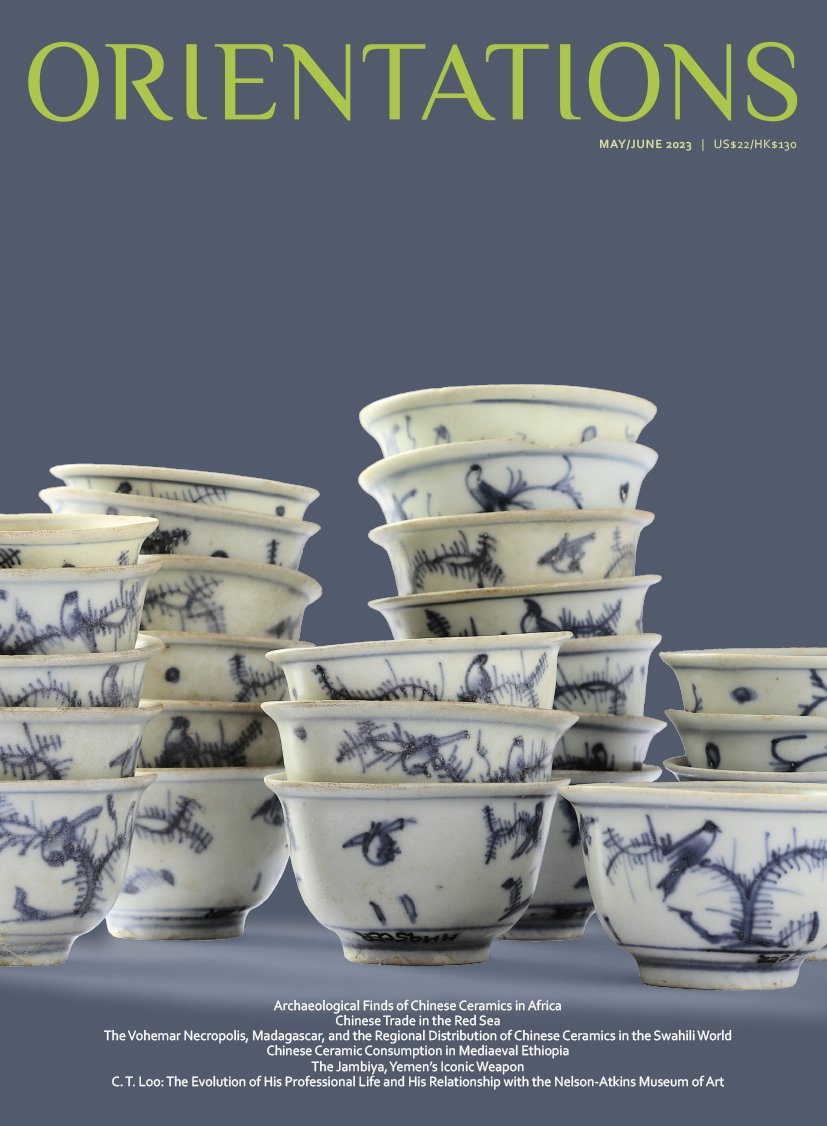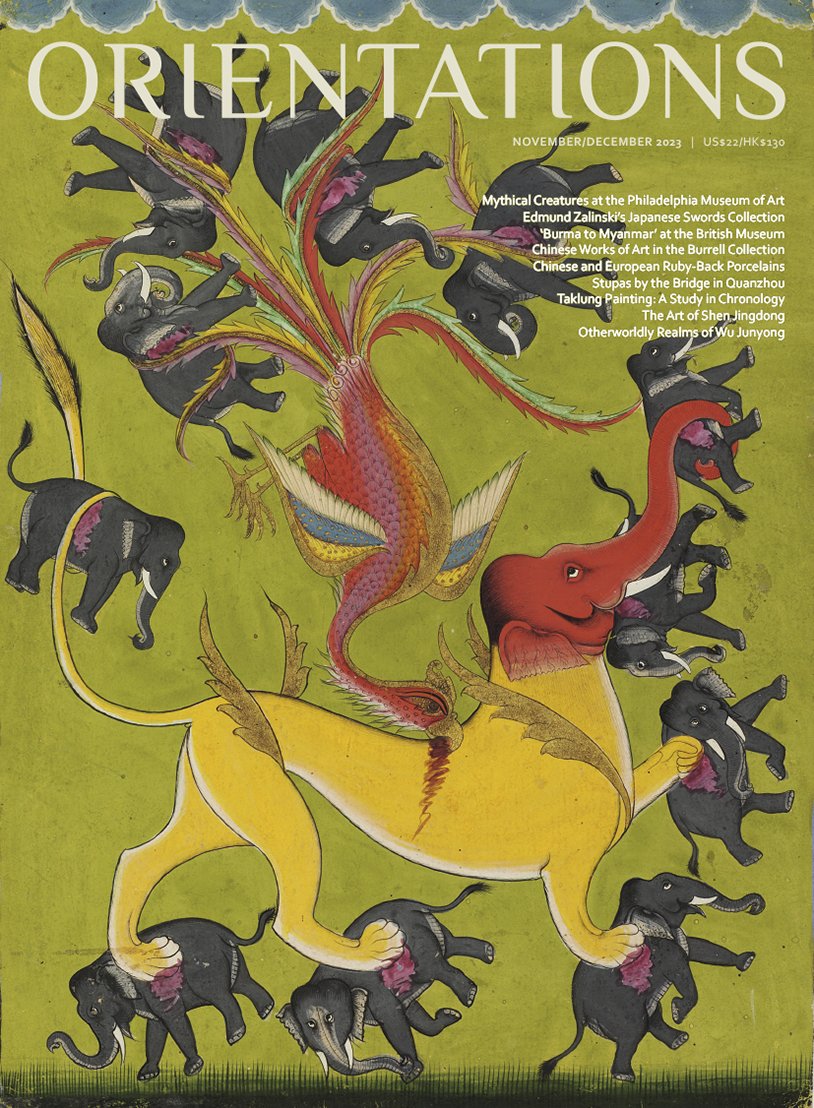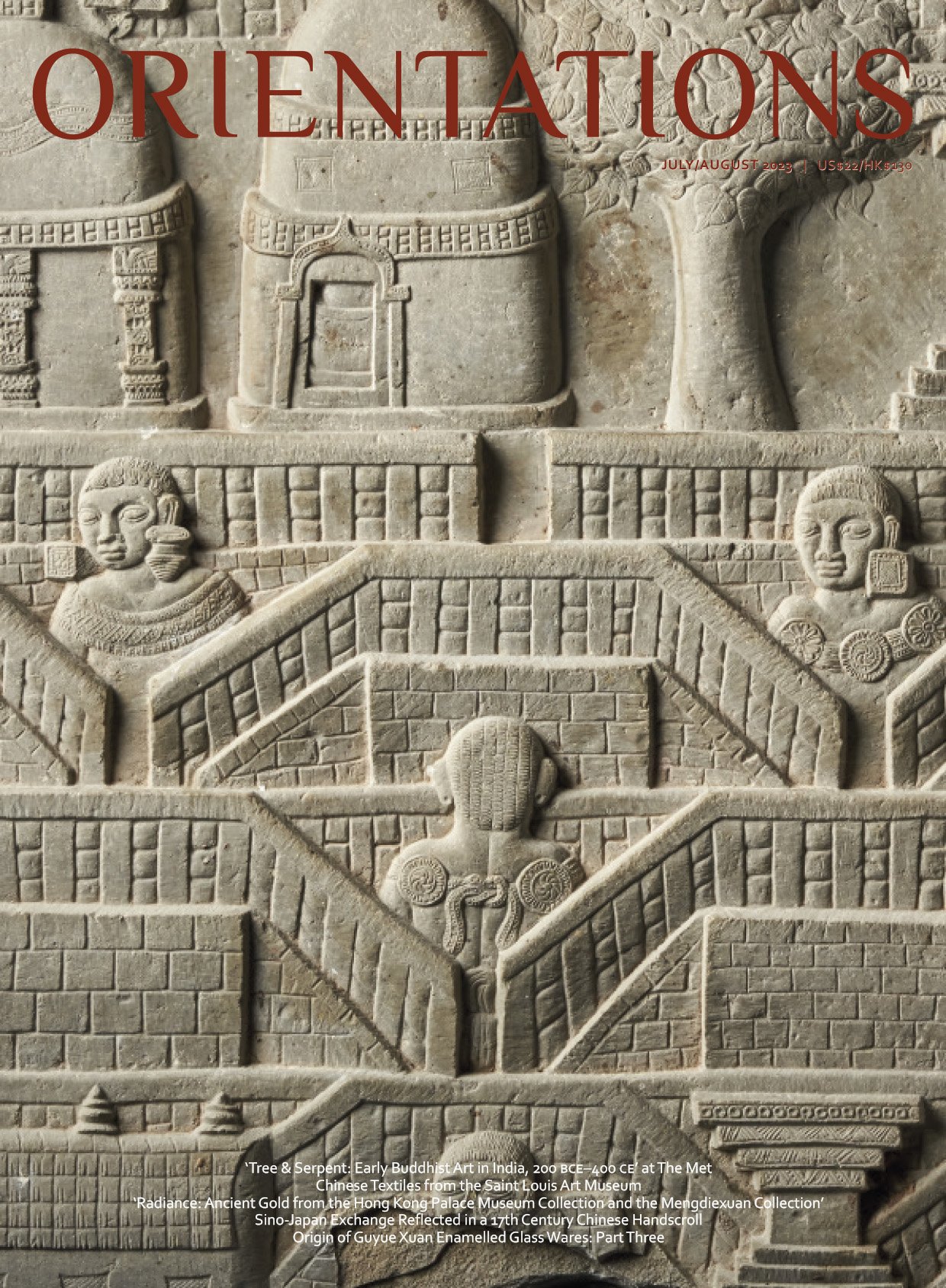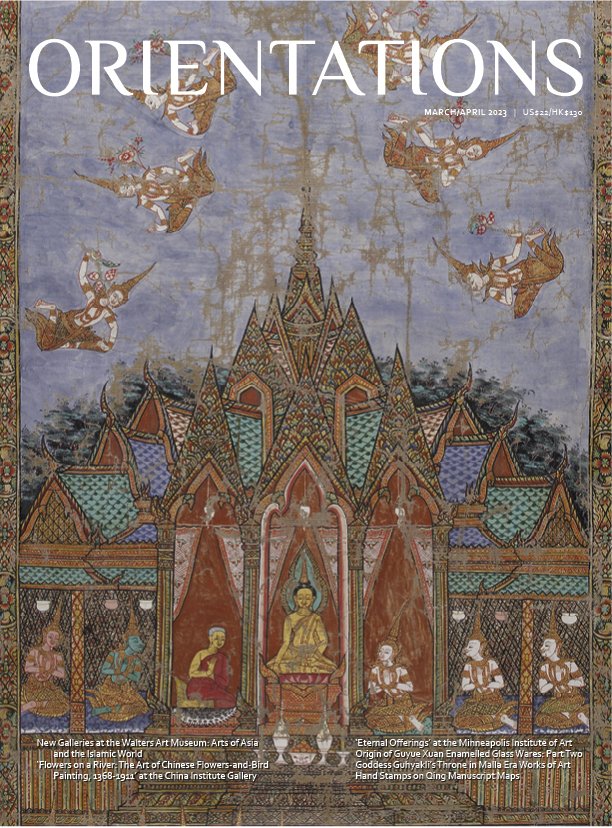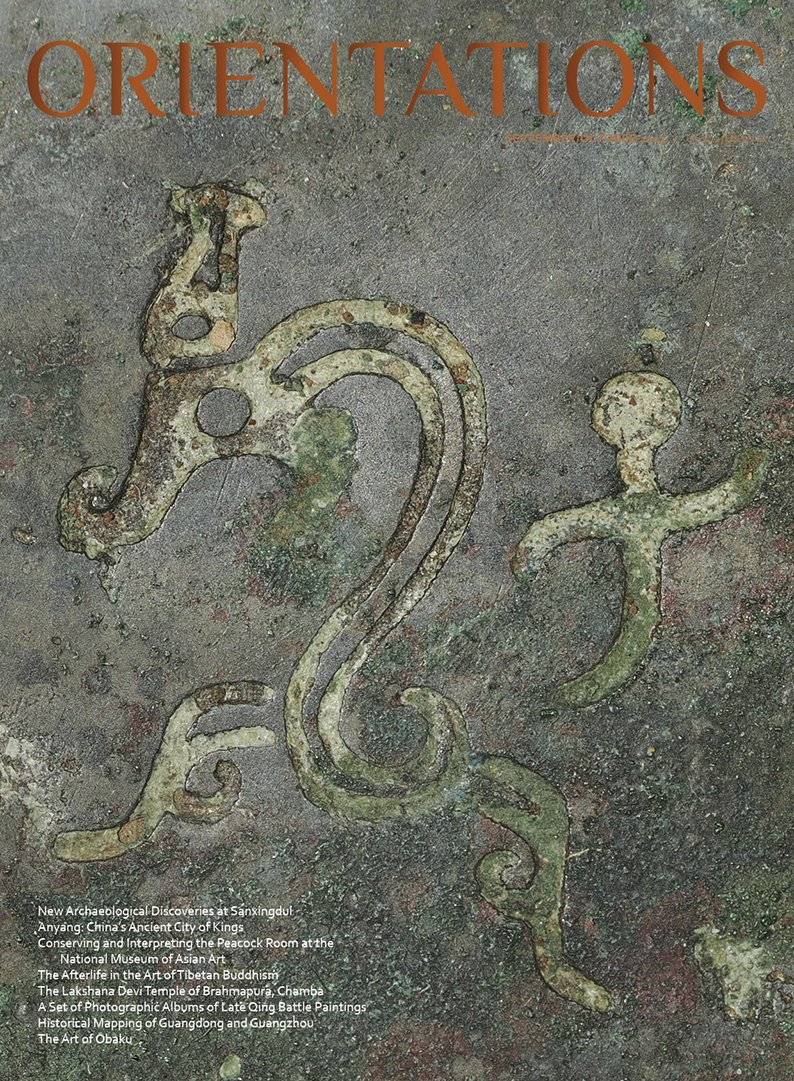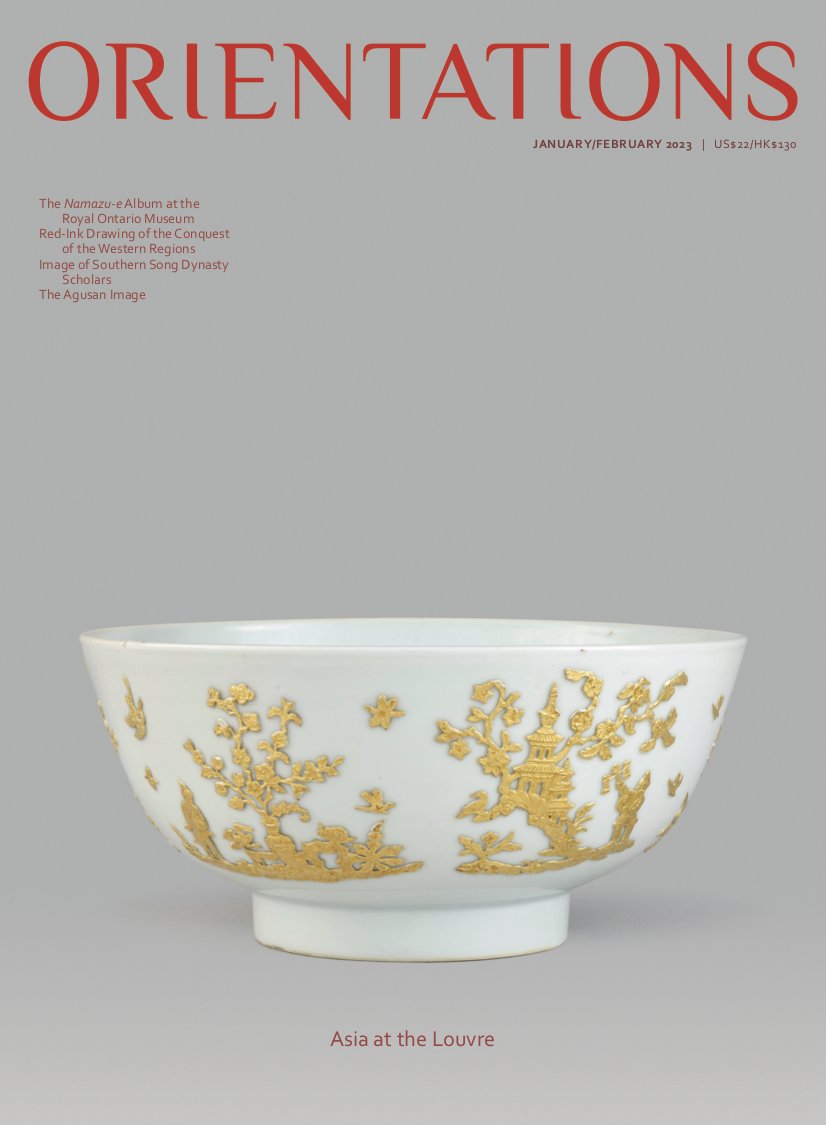 Image 1 of 1
Image 1 of 1


JAN/FEB 2023
VOLUME 54 - NUMBER 1
Many people will visit the Musée Guimet or the Musée Cernuschi in Paris to see Asian art. It is not often that the majestic Louvre Museum is associated with the arts of this region. We strive to highlight less well-known collections and were therefore pleased to work with Jean-Baptiste Clais, curator of the Asian collection and European porcelains in the Decorative Arts Department, to feature the Louvre Museum in this issue. In a series of five articles, we learn that Asian art has had a presence in the museum since its founding in 1792 and that despite the reorganization of French national museums in 1945, when the Musée Guimet became the national museum of Asian arts and absorbed most of the collection in the Louvre, the latter still managed to retain a substantial body of Asian art scattered amongst different departments. In one article, the author discusses how the Asian collection of Adolphe Thiers (1797–1877), first president of the French Third Republic, entered the museum and the treasures that it contains, including a Qianlong period (1736–95) porcelain vase with falangcai enamels. Another article is devoted to the Department of Islamic Art, which holds over 500 objects from Islamic India.
In November 2022, the Royal Ontario Museum launched a curated online exhibition entitled ‘Aftershocks: Japanese Earthquake Prints’. The exhibition features a selection of forty-two prints known as namazu-e (lit. ‘catfish pictures’), an uncommon type of woodblock print produced in reaction to several earthquakes that struck Japan in the late Edo period (1603–1868), when common folk belief held that earthquakes were caused by giant catfish living underground. We explore the history and socio-cultural meanings of namazu-e through a series of iconographical analyses of exhibition highlights.
The Qianlong emperor (r. 1736–95) commissioned several monumental paintings to commemorate his victories in battle, which he later had engraved on copper plates in France. A red-ink drawing for one of the copperplates is in the collection of the Museum of Applied Arts in Vienna and seems to be one of the lost reduced drawings that were prepared and sent to France as models for the copperplates.
The ‘Agusan Image’ is a figure of a seated woman with a naked torso wearing elaborate jewellery. Now in the Field Museum of Natural History in Chicago, it was discovered in 1917 on the island of Mindanao in the Philippines. Although it is one of the most significant archaeological discoveries of the area, there has been little research whether on its dating or identity. We propose that it represents a mixture of different influences from Java and Sri Lanka to Tibet and China, with a dating from the 11th to the 13th century.
For 2023, we have issues focusing on the Walters Art Museum, Asian art in East Africa, the ‘Tree and the Serpent: Early Buddhist Art of Southern India’ exhibition at the Metropolitan Museum of Art, the Dresden Porcelain Project, and more. We would like to thank our readers and advertisers for their continued support and to wish everyone happy holidays.
FEATURES
Jean-Baptiste Clais. Asia at the Louvre
Jean-Baptiste Clais. An Asian Promenade through Rooms of the Decorative Arts Department
Jean-Baptiste Clais. From Curiosité to Cachet: A History of East Asia at the Louvre
Jean-Baptiste Clais. The Asian Collection of Adolphe Thiers
Jean-Baptiste Clais. The Indian Collections of the Department of Islamic Art
Akiko Takesue. The Namazu-e Album at the Royal Ontario Museum and Its Online Exhibition
Niklas Leverenz. A Unique Red-Ink Drawing of the Conquest of the Western Regions
Lei Hao Tien. Analysis of Reading in an Open Hall and the Image of Southern Song Dynasty Scholars
Vinzenz Schwegmann. In Search of Identity: The Agusan Image
REVIEWS
Theresa McCullough. Burmese Silver from the Colonial Period by Alexandra Green
VOLUME 54 - NUMBER 1
Many people will visit the Musée Guimet or the Musée Cernuschi in Paris to see Asian art. It is not often that the majestic Louvre Museum is associated with the arts of this region. We strive to highlight less well-known collections and were therefore pleased to work with Jean-Baptiste Clais, curator of the Asian collection and European porcelains in the Decorative Arts Department, to feature the Louvre Museum in this issue. In a series of five articles, we learn that Asian art has had a presence in the museum since its founding in 1792 and that despite the reorganization of French national museums in 1945, when the Musée Guimet became the national museum of Asian arts and absorbed most of the collection in the Louvre, the latter still managed to retain a substantial body of Asian art scattered amongst different departments. In one article, the author discusses how the Asian collection of Adolphe Thiers (1797–1877), first president of the French Third Republic, entered the museum and the treasures that it contains, including a Qianlong period (1736–95) porcelain vase with falangcai enamels. Another article is devoted to the Department of Islamic Art, which holds over 500 objects from Islamic India.
In November 2022, the Royal Ontario Museum launched a curated online exhibition entitled ‘Aftershocks: Japanese Earthquake Prints’. The exhibition features a selection of forty-two prints known as namazu-e (lit. ‘catfish pictures’), an uncommon type of woodblock print produced in reaction to several earthquakes that struck Japan in the late Edo period (1603–1868), when common folk belief held that earthquakes were caused by giant catfish living underground. We explore the history and socio-cultural meanings of namazu-e through a series of iconographical analyses of exhibition highlights.
The Qianlong emperor (r. 1736–95) commissioned several monumental paintings to commemorate his victories in battle, which he later had engraved on copper plates in France. A red-ink drawing for one of the copperplates is in the collection of the Museum of Applied Arts in Vienna and seems to be one of the lost reduced drawings that were prepared and sent to France as models for the copperplates.
The ‘Agusan Image’ is a figure of a seated woman with a naked torso wearing elaborate jewellery. Now in the Field Museum of Natural History in Chicago, it was discovered in 1917 on the island of Mindanao in the Philippines. Although it is one of the most significant archaeological discoveries of the area, there has been little research whether on its dating or identity. We propose that it represents a mixture of different influences from Java and Sri Lanka to Tibet and China, with a dating from the 11th to the 13th century.
For 2023, we have issues focusing on the Walters Art Museum, Asian art in East Africa, the ‘Tree and the Serpent: Early Buddhist Art of Southern India’ exhibition at the Metropolitan Museum of Art, the Dresden Porcelain Project, and more. We would like to thank our readers and advertisers for their continued support and to wish everyone happy holidays.
FEATURES
Jean-Baptiste Clais. Asia at the Louvre
Jean-Baptiste Clais. An Asian Promenade through Rooms of the Decorative Arts Department
Jean-Baptiste Clais. From Curiosité to Cachet: A History of East Asia at the Louvre
Jean-Baptiste Clais. The Asian Collection of Adolphe Thiers
Jean-Baptiste Clais. The Indian Collections of the Department of Islamic Art
Akiko Takesue. The Namazu-e Album at the Royal Ontario Museum and Its Online Exhibition
Niklas Leverenz. A Unique Red-Ink Drawing of the Conquest of the Western Regions
Lei Hao Tien. Analysis of Reading in an Open Hall and the Image of Southern Song Dynasty Scholars
Vinzenz Schwegmann. In Search of Identity: The Agusan Image
REVIEWS
Theresa McCullough. Burmese Silver from the Colonial Period by Alexandra Green

